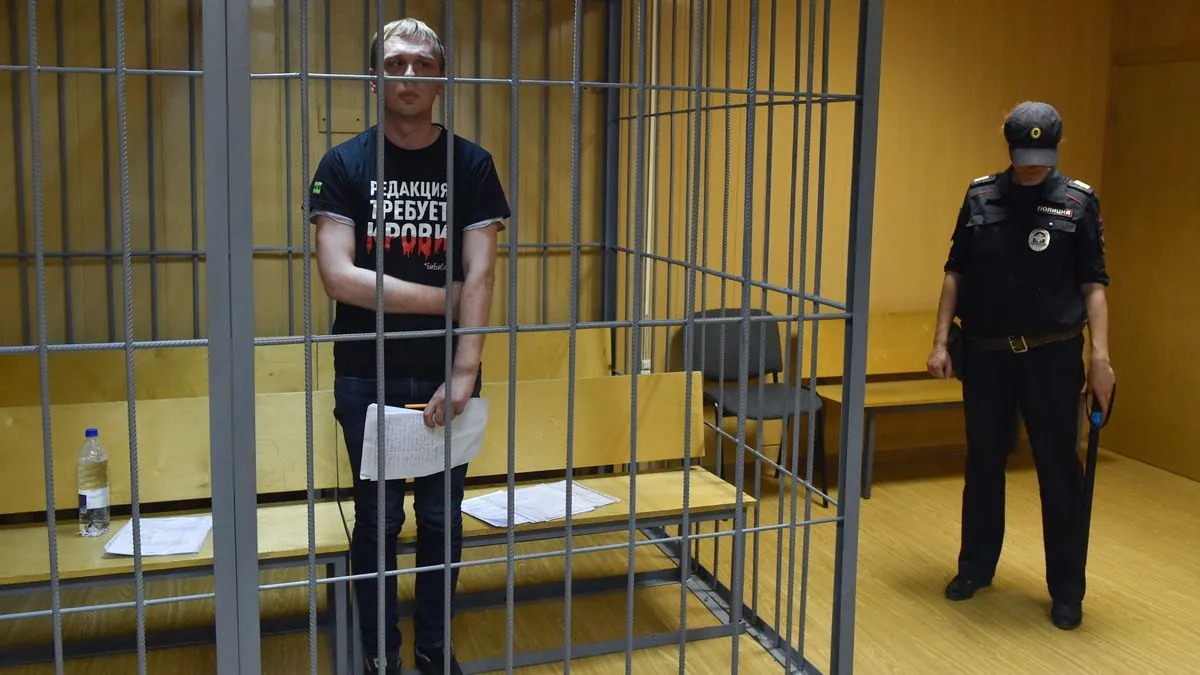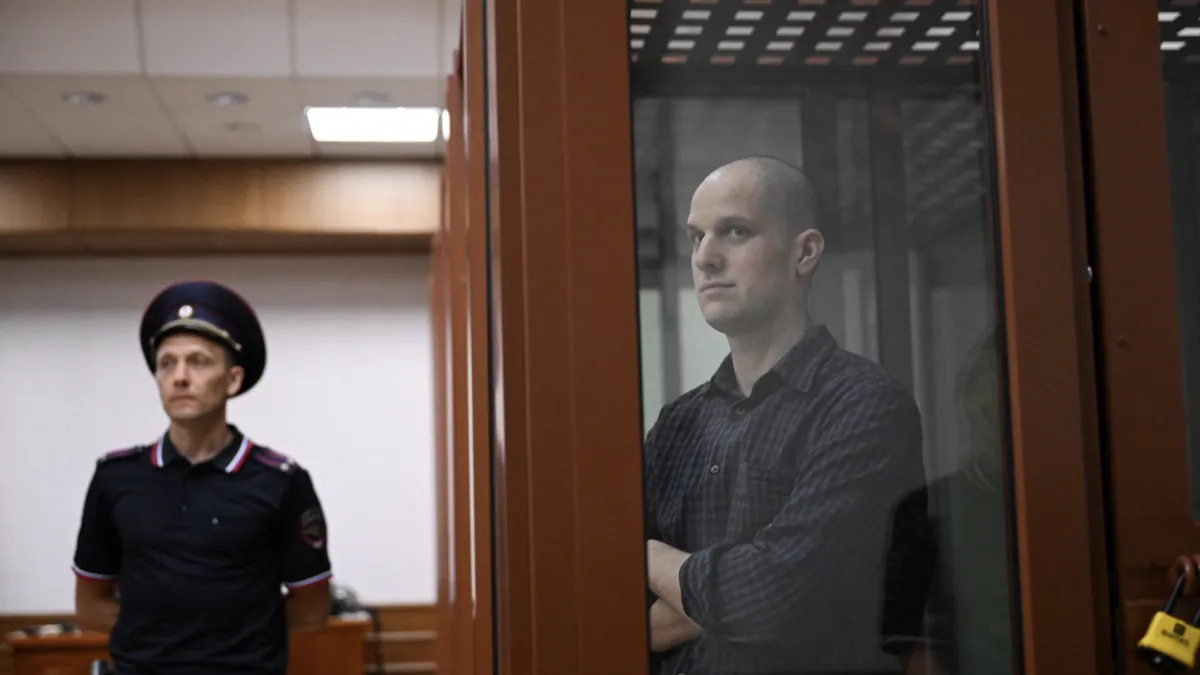Four Russian Journalists Face Trial for Alleged Ties to Navalny's Group
Four Russian journalists are on trial in Moscow, accused of involvement with Alexei Navalny's anti-corruption organization. The closed-door proceedings highlight Russia's ongoing crackdown on dissent.

In Moscow, a trial commenced on October 2, 2024, involving four Russian journalists accused of association with the late Alexei Navalny's anti-corruption organization. Antonina Favorskaya, Artyom Kriger, Sergey Karelin, and Konstantin Gabov face charges of involvement with an extremist group, potentially resulting in six-year prison sentences. The journalists have denied all allegations.
This trial is part of a broader trend in Russia, where authorities have intensified efforts to suppress dissent, particularly following the country's invasion of Ukraine in early 2022. The crackdown has affected opposition figures, journalists, activists, and citizens critical of the government, leading to numerous arrests and a significant exodus of individuals fearing prosecution.
The charges stem from the journalists' alleged work with the Foundation for Fighting Corruption, established by Navalny in 2011. In 2021, Russian authorities designated this organization as extremist, a move widely perceived as politically motivated. Navalny, who was Vladimir Putin's most prominent critic, passed away in February 2024 while serving a 19-year sentence in a remote Arctic prison.

The accused journalists have diverse backgrounds in media. Favorskaya and Kriger were employed by SotaVision, an independent news outlet focusing on protests and political trials. Gabov worked as a freelance producer for various organizations, including Reuters, while Karelin contributed to Western media outlets as a freelance video journalist.
As the trial began, supporters greeted the journalists with applause. Inside the courtroom, the accused were confined to a glass defendant's cage, from where they addressed their loved ones and the media. Kriger warned fellow journalists still in Russia about the risks they face, urging them to leave the country. Favorskaya expressed hope for a future Russia that respects rights and freedoms, echoing Navalny's vision.
The decision to conduct the trial behind closed doors, despite objections from the defense, underscores the opaque nature of such proceedings in Russia. This lack of transparency has been a recurring issue in politically sensitive cases, drawing criticism from international human rights organizations.
"It is not a joke, any person can be charged with anything."
This trial takes place against a backdrop of increasing restrictions on media freedom in Russia. Since 2000, Putin's government has implemented laws limiting free speech and press, especially regarding the Ukraine conflict. Many independent news websites and social media platforms have been blocked, leading to a surge in VPN usage among Russians seeking uncensored information.
The international community has repeatedly called for the release of imprisoned journalists in Russia, highlighting the discrepancy between the constitutional guarantees of free speech and the practical reality faced by media professionals in the country. As this trial unfolds, it serves as a stark reminder of the challenges confronting independent journalism in Russia and the ongoing struggle for freedom of expression.


































